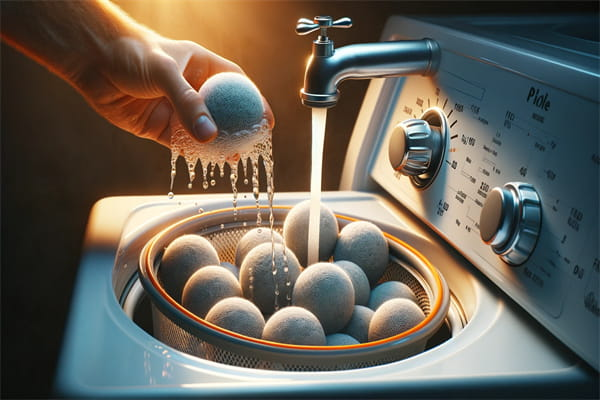Welcome to the innovative world of pool maintenance, where pool filter balls are revolutionizing the way we keep our swimming pools crystal clear. Have you ever wondered how these tiny yet mighty products work? In this blog post, we’ll dive deep into the world of pool filter balls, exploring their design, functionality, and why they are becoming a preferred choice for pool owners looking for effective and efficient water filtration solutions.

Ⅰ.What Are Pool Filter Balls?
Pool filter balls are a modern alternative to traditional sand or cartridge filters used in swimming pools. Made from 100% polyethylene or polypropylene, these small, spongy spheres range from 0.5 to 1.5 inches in diameter. Pool filter balls are designed to be lightweight, yet highly effective at trapping dirt and debris. They help maintain the cleanliness of your pool with much less hassle.Unlike sand filters, which can leave behind fine particulate matter, pool filter balls provide a much finer filtration process. This is because pool filter balls can trap microscopic particles, enhancing water clarity and reducing the need for frequent maintenance. Additionally, pool filter balls are environmentally friendly; they are reusable and made from recyclable materials, making them an excellent choice for eco-conscious pool owners.
Ⅱ.Mechanism of Action
1.Particle Capture
a.Role of Porous Structure:
Pool filter balls are designed with numerous tiny pores, creating a complex spatial structure between the balls. As water passes through this filtration system, suspended particles such as dust, pollen, and bacteria are physically trapped by these pores. This structure not only intercepts larger particles, but it also increases the surface area contact between the water flow and the filtration medium, thereby enhancing filtration efficiency.
b.Hydrodynamics:
The arrangement of the filter balls and the gaps between them create a labyrinthine path, forcing the water flow to frequently change direction. This hydrodynamic characteristic means that suspended particles in the water are less likely to move along their original paths, making it more likely for them to be captured by the filtration medium.

2.Physical Adsorption
a.Surface Adsorption Effect:
The material of the pool filter balls is selected for its high adsorptive properties, enabling them to capture and secure fine particles. These particles might include those that cannot be removed by physical entrapment due to their size or density.
b.Adsorption Mechanism:
The polymer molecules on the surface of the filter balls interact with particles in the water, such as through electrostatic attraction or intermolecular forces, causing these tiny particles to adhere closely to the surface of the balls. This adsorption is not limited to solid particles; it can also include certain harmful chemicals dissolved in the water.
Ⅲ.Pros and Cons of Using Pool Filter Balls
1.Pros:
a.Ease of Installation and Operation:
Pool filter balls are incredibly user-friendly, making them a favorite among pool owners. They can be quickly added to the filter without any complex procedures, simplifying the setup process.
b.Reusability and Easy Maintenance:
Unlike traditional filter media that require extensive cleaning or are disposable, pool filter balls can be easily cleaned with a simple rinse or by using a washing machine. This reusability extends their life and reduces waste.

c.Superior Water Clarity:
Pool filter balls do not break down into smaller particles that could cloud pool water. This stability ensures that the pool remains crystal clear, enhancing the overall swimming experience.
2.Cons:
a.Potential Degradation:
While pool filter balls are durable, they are not immune to the effects of harsh pool chemicals and UV light exposure. Over time, these factors can cause the balls to degrade, affecting their structural integrity and filtration capacity.
b.Compatibility Issues:
Not all pool filtration systems are designed to accommodate pool filter balls. This limitation means that pool owners should check compatibility before transitioning from traditional sand or cartridge filters, potentially restricting their use in certain types of pools.
c.Reduced Effectiveness Over Time:
Although pool filter balls are designed for durability, their effectiveness can diminish with repeated use. Accumulation of fine particles and chemical residues can clog the pores of the filter balls, leading to reduced efficiency. Periodic replacement might be necessary to maintain optimal performance.
Ⅳ.Conclusion
Pool filter balls represent a significant advancement in pool filtration technology. By adopting pool filter balls, pool owners can enjoy a cleaner pool with fewer chemicals and less maintenance. Although there are a few drawbacks to consider, the benefits of using pool filter balls—such as their efficiency, ease of use, and environmental impact—far outweigh these concerns.If you’re looking for a cost-effective, efficient, and eco-friendly way to maintain your pool, pool filter balls might just be the solution you need.

 Instant
Quote
Instant
Quote Email
Us
Email
Us